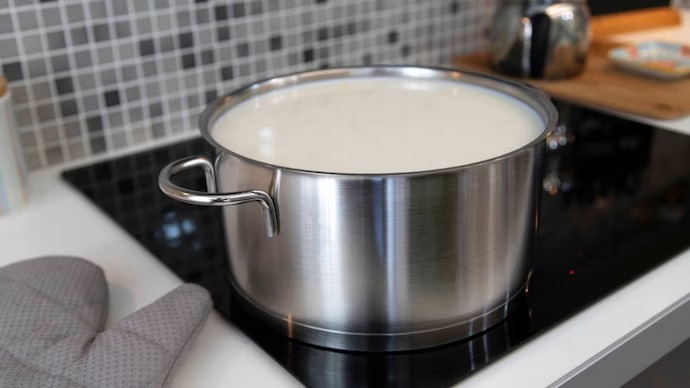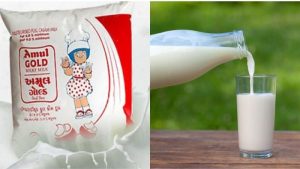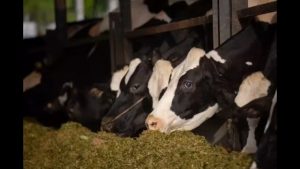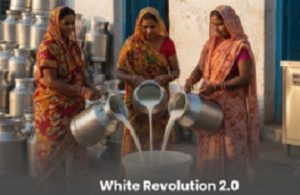
When a packet of milk arrives at your home, do you immediately boil it? Find out from experts whether this is a healthy practice or if it compromises milk’s nutritional value.
In Short
- According to experts, pasteurised milk does not need to be boiled
- It has already undergone a heat treatment process, making it safe for consumption
- However, if the milk packet is damaged, boiling may be advisable as an extra precaution
Honestly, how many times have you had an argument with your mom about not boiling milk before drinking it? The answer is probably countless. While we may often overlook the ‘boiling milk’ situation, our mothers are steadfast in their beliefs. It’s a lesson ingrained in them, and they want to pass it on to us. For them, the concern is that drinking milk straight from the packet might lead to unexpected consequences.
However, there’s been a debate on social media suggesting that the pasteurised milk we buy in packets shouldn’t be boiled, as doing so could diminish its nutritional value.
Let’s turn to the experts to find out what the best course of action really is.
The habit of boiling milk
“In India, boiling milk before consumption is a deeply ingrained practice due to historical and cultural reasons. Traditionally, milk was obtained from local dairy farmers, and boiling was necessary to kill bacteria and other microorganisms that could cause illness,” says Dr Rakesh Gupta, internal medicine, Indraprastha Apollo Hospitals, New Delhi.
The doctor further tells India Today, “Even with the advent of packaged milk, the habit persisted. Additionally, India’s tropical climate and inadequate cold storage infrastructure in rural areas make boiling a necessary step to ensure safety.”
What happens when you boil?
Dr Vichar Nigam, consultant, internal medicine, Manipal Hospital, Pune, explains that boiling happens when the temperature of the milk is more than 100 degrees Celsius, and at that temperature, most of the organisms that can be present directly from the dairy, like salmonella or clostridium, usually get destroyed.
Further, Dr Gupta shares that when milk is boiled, it undergoes significant changes.
The heat kills bacteria, viruses, and other microorganisms, making it safer for consumption. Proteins are denatured, making them more digestible, while fat molecules are broken down, improving absorption.
Lactose is caramelised, creating a sweeter flavour, and the texture becomes thicker and creamier. Boiling milk also extends its shelf life by reducing the risk of spoilage.

Should you boil packaged milk?
According to Dr Nigam, milk that comes in a packet has to be boiled if it’s unpasteurised because it may still contain some of the infection or organisms that have affected the milk before packaging.
To this, Dr Archana Batra, a Gurugram-based dietitian, adds, “Milk that comes in sealed packets in India is usually pasteurised, meaning it has already undergone heat treatment to kill harmful bacteria. Technically, boiling such milk is not necessary for safety.”
However, many people still boil packaged milk because:
- Cultural habit: It’s been a generational practice that people continue.
- Perceived safety: Many feel additional boiling ensures safety, especially with concerns about milk adulteration.
- Taste preference: Boiling changes the texture and flavour, which some people prefer.
While Dr Gupta agrees, he states that if the packet is damaged, tampered with, or stored improperly, boiling may be advisable as an added precaution.
Meanwhile, as per Ridhima Khamesra, an Udaipur-based dietitian, when you boil milk, you not only obliterate bad bacteria but also the good ones, making it a host of numerous diseases, and at the same time, we lose essential nutrients.
Vitamin C and B content may decrease because of boiling, while proteins may become less effective due to denaturation.
“You can warm up the packaged milk a bit before drinking it. Ideally, a glass of milk gets warm enough within 4-5 minutes on medium flame and becomes fit for drinking while keeping the essential nutrients intact,” she adds.
Understanding pasteurisation method
Pasteurisation is a heat treatment process where milk is heated to a specific temperature for a set period to kill harmful bacteria while preserving most of its nutritional value. There are two main methods:
- High temperature short time (HTST): Milk is heated to 72°C (161°F) for 15–20 seconds.
- Ultra-high temperature (UHT): Milk is heated to 135°C (275°F) for 2–5 seconds. This process allows milk to be stored without refrigeration for long periods if kept sealed.
Pasteurisation helps extend milk’s shelf life and makes it safer to consume without the need for boiling. To determine whether the milk you’re purchasing is pasteurised, you can simply check the information on the back of the packet.
Storage can make a difference
Dr Nigam explains that boiling pasteurised milk doesn’t offer any extra benefits for killing organisms. However, if you’re unsure whether the cold chain for transporting the milk has been maintained, or if the packet has visible dirt that might have mixed in while pouring, boiling can serve as an extra safety measure.
Any packaged milk that has been pasteurised needs to be kept at a specific temperature throughout its journey to the consumer. If there are breaks in the cold chain—meaning the temperature has fluctuated significantly, or if the packet has been damaged or mishandled—this can seriously affect the quality and sterility of the milk.

It’s not the same for all types of milk
- Different types of milk require varying handling and boiling procedures. Cow milk, buffalo milk, and full-cream milk can be boiled as usual.
- However, skimmed milk and low-fat milk should be boiled gently to avoid protein denaturation.
- Almond milk, soy milk, and other plant-based milks should not be boiled, as heat can damage nutrients and flavour.
- Lactose-free milk should be boiled briefly, as the lactase enzyme may be denatured.
- Powdered milk should be reconstituted according to package instructions, then boiled if necessary.
You can now read the most important #news on #eDairyNews #Whatsapp channels!!!
🇮🇳 eDairy News ÍNDIA: https://whatsapp.com/channel/0029VaPidCcGpLHImBQk6x1F


















